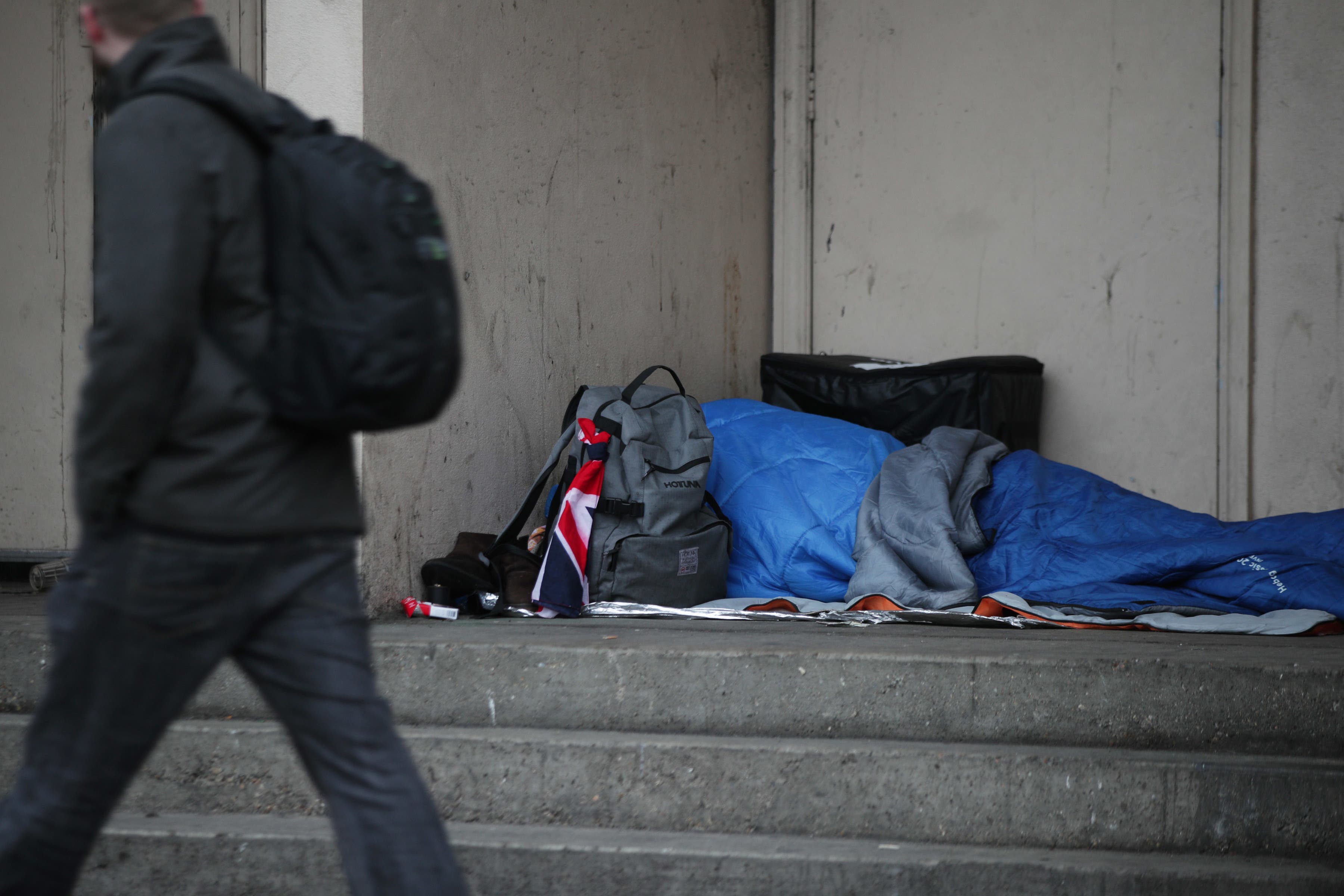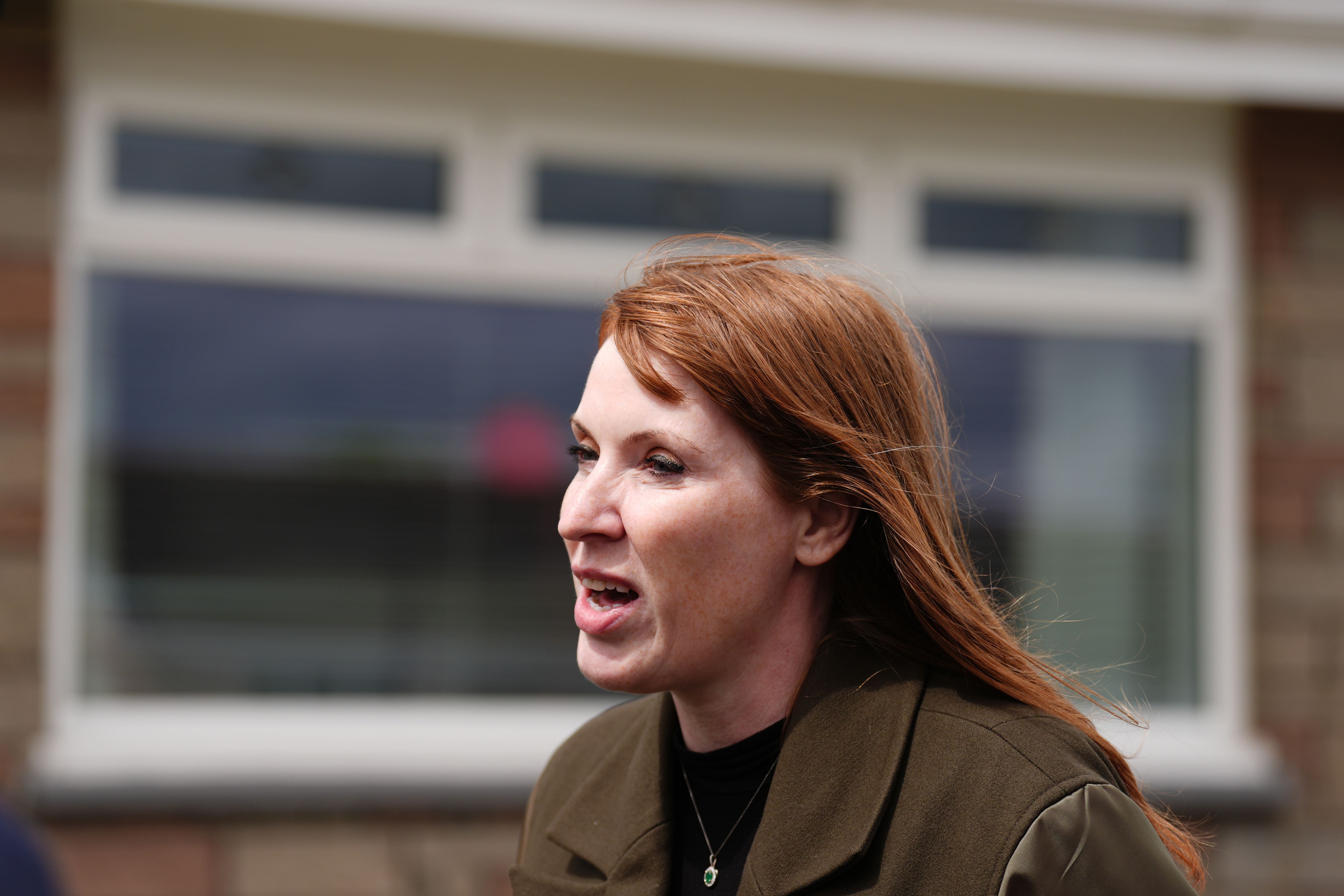
A 200-year-old law criminalising rough sleepers is to be scrapped in what has been hailed as a “landmark moment”.
The Vagrancy Act, introduced in 1824, was designed to punish “idle and disorderly persons, and rogues and vagabonds, in England”.
The government has confirmed that it will be repealed by spring next year.
Deputy Prime Minister Angela Rayner, who is also Housing Secretary, said Labour is “drawing a line under nearly two centuries of injustice towards some of the most vulnerable in society”.
The law was brought in to deal with rising homelessness after the Napoleonic Wars and the Industrial Revolution, and modern-day homeless charities have long called for it to be scrapped.
Campaigners said criminalising the most vulnerable has never been the answer, and instead, homelessness needs to be properly addressed through support for people who end up sleeping rough.

Figures published in April showed the number of people classed as living on the streets in London had risen by more than a third (38 per cent) year-on-year to 706 from 511.
According to the latest Combined Homelessness and Information Network (Chain) statistics, the total number recorded as sleeping rough in the capital was 4,427 for the three months to March 2025, which was a near-8 per cent increase from 4,118 for the same quarter last year.
Ms Rayner said: “No one should ever be criminalised simply for sleeping rough and by scrapping this cruel and outdated law, we are making sure that can never happen again.”
Homelessness minister Rushanara Ali described the “archaic” Act as “neither just nor fit for purpose”.
“Scrapping the Vagrancy Act for good is another step forward in our mission to tackle homelessness in all its forms, by focusing our efforts on its root causes.”
The Government said new “targeted measures will ensure police have the powers they need to keep communities safe – filling the gap left over by removing previous powers”, and will be brought in through amendments to the Crime and Policing Bill.
These will be new offences of facilitating begging for gain and trespassing with the intention of committing a crime.

The Government said this will ensure organised begging – often facilitated by criminal gangs – remains an offence, meaning it is unlawful for anyone to organise others to beg by, for example, driving them places to do so.
Crisis chief executive Matt Downie said: “This is a landmark moment that will change lives and prevent thousands of people from being pushed into the shadows, away from safety.”
He praised the Government for having “shown such principled leadership in scrapping this pernicious Act”.
He said: “We hope this signals a completely different approach to helping people forced onto the streets and clears the way for a positive agenda that is about supporting people who desperately want to move on in life and fulfil their potential. We look forward to assisting the UK Government with their forthcoming homelessness strategy to do exactly that.”
St Mungo’s chief executive Emma Haddad said the Act’s repeal “cannot come soon enough” and called for a “focus on tackling the health, housing and wider societal issues that are causing homelessness in the first place”.
Youth homelessness charity Centrepoint warned that a challenge will be “ensuring that proposed amendments don’t have the unintended consequences of punishing people instead of supporting them”.
Balbir Kaur Chatrik, the charity’s director of policy and prevention, said: “Criminalising the most vulnerable was never an effective solution and we look forward to working with the Government on its ending homelessness strategy to ensure people in this position are supported, not punished going forward.”
Spending Review – live: Reeves to pledge £39bn to tackle housing crisis
Why did Starmer change tack on winter fuel payments? Every U-turn explained
What is the spending review? Everything Reeves could announce today
Claudia Winkleman and Tess Daly reportedly named in King’s Birthday Honours
US condemns UK decision to sanction two Israeli ministers
Three teenagers charged with murder of 14-year-old boy in Manchester






